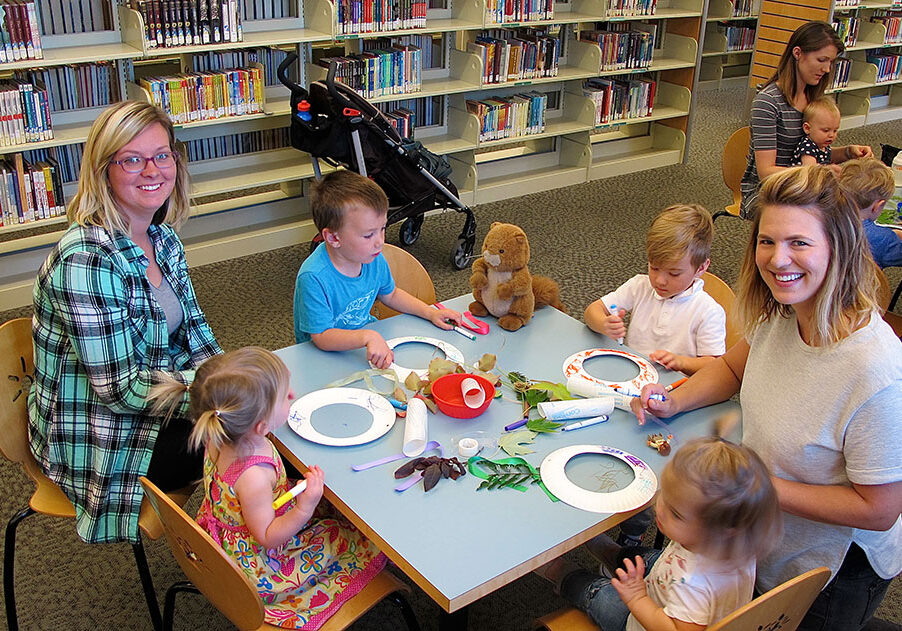Helping Parents Navigate Conversations about Consent
I’m concerned about our children and their ability to make sense of sexuality in our confusing world where accusations are becoming more common; a world where pornography is replacing intimacy, a world where the entertainment world portrays sex as a commodity instead of a special interaction between people who love each other. These concerns are why I sat down with Shakita Taylor, a lawyer-turned-sex educator, to understand what parents can do to help their children of all ages navigate today’s world of touch and sexuality.
Sexuality is a sensitive topic, but a sensitive topic is not a topic to ignore. Often the topics that we fear most are the most important. If you are a parent and you want your children to be able to make wise choices about who touches them, when and how, read on and find out what one highly respected and educated sexual confidence advocate, herself a victim, has to say.
Joy: What is sexual consent?
Shakita: Consent is simply asking for permission or giving permission to be touched.
Joy: Why is it important for parents to talk with their children about consent?
Shakita: Talking about consent is important because it teaches children that they have authority over their bodies and teaches children how to respect the bodies of their peers.
Joy: What age should parents start talking about consent?
Shakita: Once your child is old enough to understand the concept of raising his or her hand to ask a question then the child is old enough to understand consent. In my experience usually around age four.
Joy: Is the conversation about consent different with older children?
Shakita: Yes. For preteens and teens who are experiencing puberty and new emotions, the topic of consent often needs to delve deeper, and a good starting place is teaching the difference between affirmative consent and coerced consent.
In 2014, California was one of the first states to pass an affirmative consent law (SB 967) commonly referred to as “yes means yes.” This piece of legislation requires affirmative consent to engage in sexual activity and requires that the consent be ongoing and can be withdrawn at any time. The law also clarifies that coercion or threat of force can also not be used to establish consent.
Coerced consent is getting permission only after a threat or “wearing down” of the free will of the other person. It is important for teens and preteens to understand that coerced consent is NOT affirmative consent. Here is an example of coerced consent:
Teen 1: Can I hold your hand.
Teen 2: No.
Teen 1: Please, can I hold your hand. It makes me feel good to hold your hand.
Teen 2: I would prefer not to.
Teen 1: People are going to think badly of us if we don’t hold hands.
Teen 2: Fine, go ahead.
In the example, Teen 2 has been coerced into agreeing to hold Teen 1’s hand, and Teen 2’s consent was NOT freely given. Had Teen 1 and Teen 2 been discussing sexual activity Teen 1 could be facing allegations of sexual assault or rape. Consent is serious.
Joy: How can a parent model clear consent?
Shakita: Parents can practice what they teach. Parents often guilt children into making decisions that the parent thinks are best. Parental coercion is tricky because parents want to influence their children to make good choices. However, parents must be careful not to undermine their children’s ability to stand up for themselves when the child risks disappointing someone they care about. It is difficult for youth to go against popular opinion. Especially if doing so could result in negative treatment from their peers. Acknowledge your child’s fears as true fears and try not to dismiss them. Issues that we as parents see as trivial are often impactful for our children.
Joy: How can parents gain the confidence to have these difficult conversations?
Shakita: Parents must create an environment where judgment is overcome by understanding, love, and communication. There are three steps to creating a non-judgmental environment that fosters communication:
- Institute an atmosphere of transparency by sharing your successes and your failures with your child.
- Eliminate the “you vs. me” attitude. Instead of taking the position that “I am the parent and you are the child, so you must do as I say,” take the position that you are a partnership, where you must work together to be successful.
- Talk often about anything.
Joy: Does it ever get easier to talk about sex with our children?
Shakita: Once your children have a routine of talking to you then conversations involving consent and sex will likely happen naturally during everyday life. When they see or hear something that they have questions about they will ask because the conversation is a normal part of their lives. Overreacting or saying “you are too young for that” only forces your child to find the answer from someone else or someplace else like their friends at school, social media or google.
Joy: Are resources available for parents to educate themselves on issues like consent?
Shakita: Absolutely! There is a parent education course titled Beyond the Sex Talk that gives parents practical tools to navigate conversations regarding consent, dating violence, social media and technology use, as well as how to have “the sex talk.” Parents can use the training to educate themselves on the issues affecting their children so that they can have the confidence to engage in sometimes awkward, but necessary conversations. The course is available at http://www.shameundonelife.com.
Posted in: Community, Digital Only, Parenting
Comment Policy: All viewpoints are welcome, but comments should remain relevant. Personal attacks, profanity, and aggressive behavior are not allowed. No spam, advertising, or promoting of products/services. Please, only use your real name and limit the amount of links submitted in your comment.
You Might Also Like...

Your Local Library is a Hub of Activity
If a library isn’t your idea of the “happening place” in town, it’s time to walk back through the doors of your local branch. Gayle Harrington, Cottonwood’s director of library […]

Create a Family Tradition!
What are your fondest memories from childhood? No doubt many of them are of your family’s traditions: helping Grandma bake her homemade pumpkin pie, the first time you won Monopoly […]

Earth Day Awareness: Publisher’s Picks
Low-cost activities from recycled materials are easy to make and fun to wear! Check out North State Parent’s picks to inspire Earth Day awareness his year. From crafts and building […]
Cuddle A Reader, Create A Reader – A Special Message And More For New Parents
“It’s never too early to start reading to your child.” This is the message that parents of newborns are hearing at Dignity Health Mercy Medical Center Redding (MMCR) before they […]

Road Trippin’ – Healthy, Kid-Friendly Snacks for the Road
Parents know that a hungry kid equals a cranky kid, and let’s not forget that parents get hungry and cranky, too! Nothing like a car full of “hangry” road trippers […]

Families That Grow Cooperatively – Building A Better Community … One Neighborhood And School At A Time
Sharing … involvement … community building … these are just some of the concepts that come to mind when describing a cooperative enterprise. Cooperative living arrangements and cooperative schooling are […]


